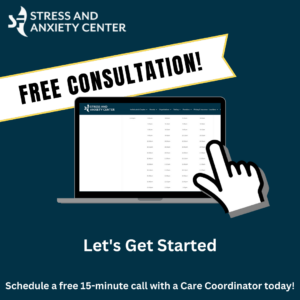Depression is a complex mental health condition that affects millions of people worldwide. Despite the growing awareness, many still believe that depression is a sign of weakness or a moral failing. However, understanding depression as a medical condition can help dismantle this stigma and open the door to seeking depression help.
What is Depression?
Depression is more than feeling sad; it’s a mood disorder that impacts how a person thinks, feels, and handles daily activities. Common symptoms of depression include a lack of energy, changes in sleep patterns, loss of interest in social activities, and persistent feelings of sadness or hopelessness. There are various types of depression, including major depressive disorder and persistent depressive disorder, each with unique challenges.
Depression is Not a Moral Failure
Depression can lead to self-criticism, causing individuals to feel as though they’re at fault for their condition. This misunderstanding can prevent people from seeking help, as they may worry about how family members and friends view them. Depression is a medical condition influenced by factors like genetics, brain chemistry, and life experiences, not a reflection of a person’s character.
The Impact of Depression on Daily Life
People with depression may struggle with simple daily tasks, including work, maintaining relationships, and taking care of themselves. The loss of interest in physical activity and social interactions is common, making it harder to engage with the world. This withdrawal can worsen feelings of isolation and further impact mental health.
Treatments for Depression
Seeking depression help can make a significant difference in managing symptoms and improving quality of life. SF Stress & Anxiety Center offers evidence-based treatments such as Cognitive Behavioral Therapy (CBT) and Dialectical Behavioral Therapy (DBT). These therapies help individuals challenge unhelpful thought patterns and develop healthier ways to cope with depression.
- Cognitive Behavioral Therapy (CBT): CBT is highly effective in treating depression by helping individuals identify and modify negative thought patterns.
- Dialectical Behavioral Therapy (DBT): DBT combines mindfulness with cognitive techniques, providing tools to manage emotional responses and build resilience.
Ready to take the first step? Schedule a free consultation with SF Stress & Anxiety Center to learn how our experienced therapists can support you.
Self-Care and Lifestyle Changes
While therapy is a cornerstone of treatment, lifestyle changes can also aid in overcoming depression. Engaging in regular exercise, maintaining a balanced diet, and establishing a consistent sleep routine can contribute to overall mental health. Connecting with a mental health professional can provide guidance on developing a self-care plan tailored to individual needs.
Overcoming Depression
Overcoming depression is a journey that requires patience, resilience, and often professional support. By seeking help, individuals can take steps toward understanding depression and reclaiming their lives. SF Stress & Anxiety Center’s experienced therapists are here to help you navigate this journey with compassion and expertise.
Depression is not a moral failure; it’s a treatable mental health condition. If you or someone you know is struggling, consider reaching out for support. You deserve to feel better, and with the right help, you can take control of your mental health and find a path to healing.
Get Started on Your Path to Recovery
Taking action against depression is a sign of strength. By reaching out to professionals who specialize in mental health, you’re making a choice to prioritize your well-being. SF Stress & Anxiety Center is dedicated to helping you achieve a happier, healthier life through personalized, evidence-based care. Click here to schedule your consultation and begin your journey to overcoming depression today.


